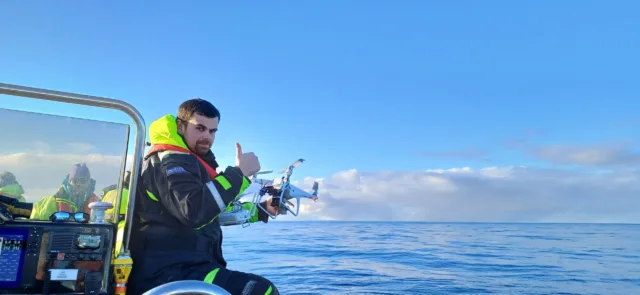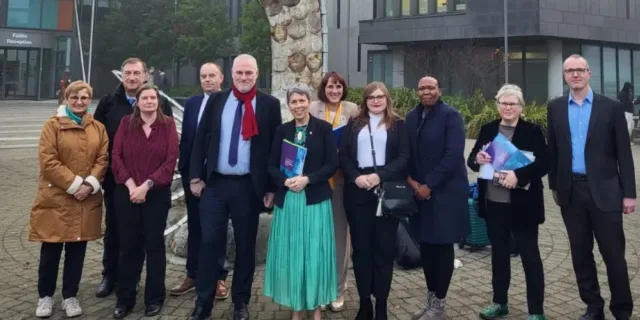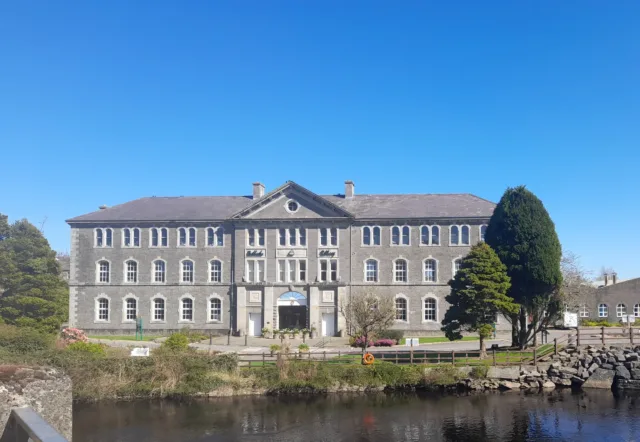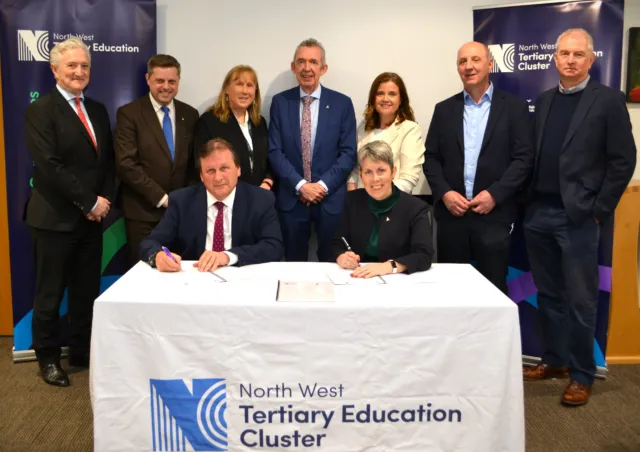Professor Philip Nolan launches new Postgraduate Research Training Programmes (PRTPs) at Atlantic Technological University
PRTPS will produce multi-disciplinary research graduates in two key growth areas - Modelling and Computation for Health and Society (MOCHAS) and Operations and Supply Chain Research (OSCAR).
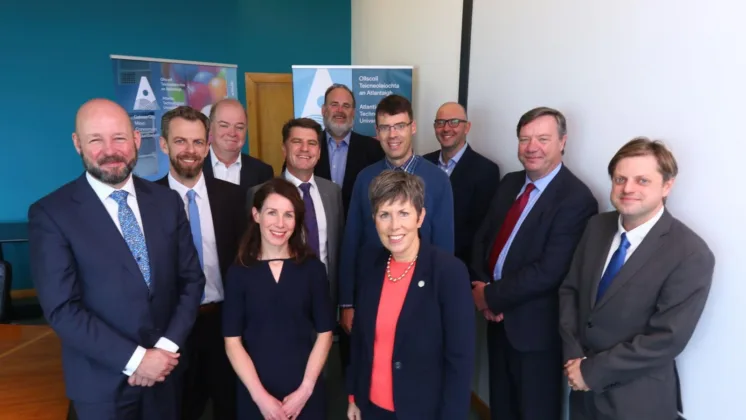
Director General of Science Foundation Ireland (SFI) and former chair of the National Public Health Emergency Team (NPHET)’s Irish Epidemiological Modelling Advisory Group Professor Philip Nolan officially launched Atlantic Technological University’s new Postgraduate Research Training Programmes (PRTPs) today, Wednesday 28 September, at the ATU Galway campus.
The first two new programmes aim to produce high-level multi-disciplinary research graduates in Modelling and Computation for Health and Society (MOCHAS) and Operations and Supply Chain Research (OSCAR), with 30 scholarships funded in the initial awards. A cohort of PhD scholarships are provided under each programme focused around addressing specific societal and industry challenges.
ATU is establishing these Postgraduate Research Training Programmes in collaboration with external partners in industry and academia. This will equip PRTP graduates with the technical, field-specific skills and transferable skills required to achieve employment in high-value jobs and to adapt to rapidly evolving workplaces. Students joining the programmes will have access to learning environments of research excellence across the campuses of ATU which span the west and north-west of Ireland.
Professor Philip Nolan, Director General, SFI, congratulated ATU on these initiatives: “Science Foundation Ireland is delighted to support the Technological Universities as they continue to build excellence and capacity in research and innovation. That development is very evident today. Atlantic Technological University have demonstrated great initiative and ambition in the design and implementation of their Postgraduate Research Training Programmes.
“ATU’s implementation of PRTPs is informed by international and national developments in relation to doctoral training; industrial and work-based learning; and transferable research skill development. The PRTPs involve designed collaboration between Higher Educational Institutions, private and public enterprises, agencies, and Non-Government Organisations (NGOs). This is likely to accelerate the generation of relevant research outcomes and to ensure that these outcomes are adopted and impactful.
“I congratulate ATU for their acute focus on societal challenge, research impact and student opportunity. This approach augurs well for further collaboration between ATU and the SFI Research Centres and Programmes. I wish the Programme teams and PhD Scholars involved in the MOCHAS and OSCAR PRTPs every success.”
Dr Rick Officer, Vice-President for Research and Innovation at ATU Galway-Mayo, said the launch is a proud day for ATU as it continues to expand its research activities: “Our Postgraduate Research Training Programmes represent a novel and ambitious initiative for our new university. PRTPs will help to shape the future postgraduate research environment within ATU, and to deliver on our vision for research across key strategic areas critical to our region.
“The two programmes being launched today focus on key challenges of great societal and sectoral importance: operation and supply chain improvement, and the application of computational technologies in medical-care and healthcare.
“In congratulating the teams behind these two programmes I also want to recognise the leaders of our other candidate PRTPs. An independent and international evaluation recognised excellence in eight PRTP proposals and recommended another six PRTPs for funding.”
These two programmes were selected through a competitive application process that was independently and internationally reviewed. Each programme is recruiting a cohort of 15 PhD students who will conduct individual 4-year research programmes in collaboration with partners in higher education, public and private enterprise, government agencies, and non-governmental organisations.

